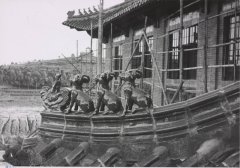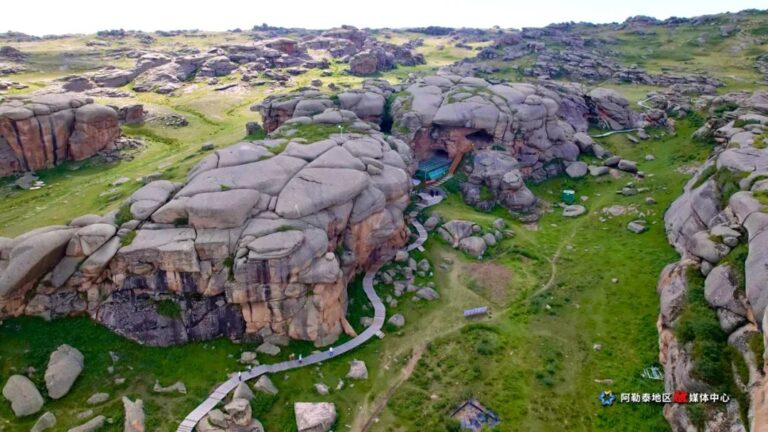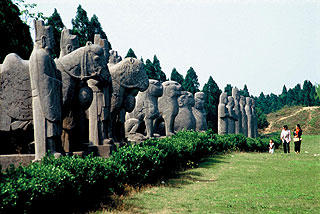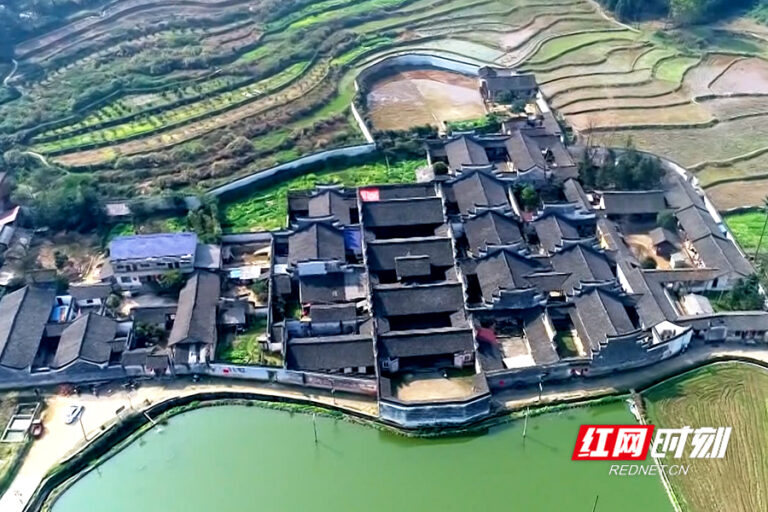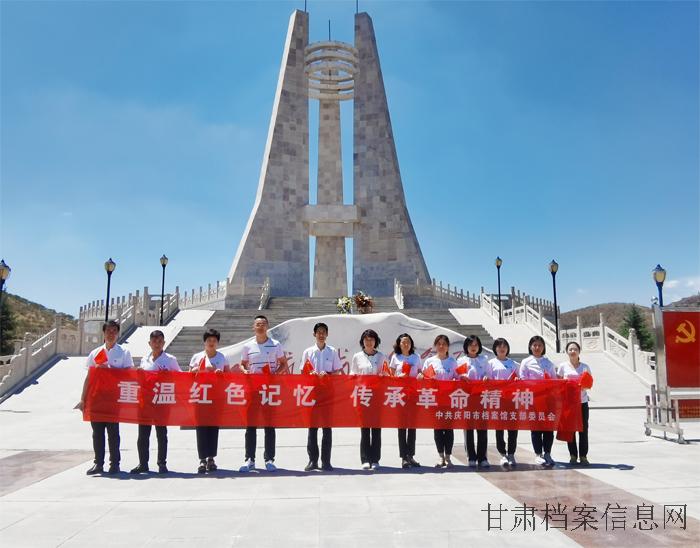Exploring the Cultural Richness of Jinhua Yuqingtang: A Must-Visit in Jinhua
An Essential Guide to Visiting Jinhua Yuqingtang
In This Guide
- An Essential Guide to Visiting Jinhua Yuqingtang
- The Rich History of Jinhua Yuqingtang
- Main Highlights: What to See at Jinhua Yuqingtang
- Planning Your Visit: A Practical Guide
- Tickets, Hours, and Booking
- How to Get There
- Local Cuisine and Accommodation
- Frequently Asked Questions
- Final Thoughts on Your Trip
Nestled in the heart of China’s Zhejiang province, Jinhua Yuqingtang (余庆堂) stands as a captivating testament to the region’s rich cultural and historical tapestry. This ancestral hall, dating back to the Ming Dynasty, is not just an architectural marvel; it embodies the legacy of the Cheng family, descendants of the renowned Song Dynasty philosophers Cheng Yi and Cheng Hao. Built during the reign of Emperor Hongwu, the structure showcases traditional Chinese design with its three courtyards and intricately carved stone lions that guard the entrance, whispering tales of a bygone era.
As a nationally recognized key cultural relic, Yuqingtang has been meticulously preserved, offering visitors a glimpse into the artistic and philosophical legacies of Confucianism that shaped Chinese society. The hall, completed in 1790, features stunning architectural elements typical of the Qing Dynasty, including elegant eaves, intricately decorated beams, and a harmonious layout that reflects the principles of balance and symmetry.
Visitors to Yuqingtang will not only appreciate its historical significance but also find themselves immersed in the tranquil atmosphere of the surrounding village of Dudu. Here, the charm of rural life is alive, with lush landscapes and local traditions that echo the hall’s storied past. Whether you’re an avid historian, an architecture enthusiast, or simply seeking a serene escape, Jinhua Yuqingtang offers an enriching experience that intertwines culture, history, and natural beauty, making it a must-visit destination in Zhejiang.
The Rich History of Jinhua Yuqingtang
Nestled in the lush landscapes of Jinhua, Zhejiang Province, Jinhua Yuqingtang (余庆堂) stands as a remarkable testament to the region’s rich cultural heritage. Constructed during the Ming Dynasty, specifically in the early years of the Hongwu reign (1368–1398), this ancestral hall has served as a pivotal site for honoring the descendants of prominent scholars and philosophers, particularly the influential Cheng brothers, Cheng Yi and Cheng Hao.
The hall was established by Cheng Jiahe, a descendant of the Cheng family, during the Qing Dynasty in 1790, marking the 55th year of Emperor Qianlong’s reign. The construction reflects the architectural elegance of the time, featuring a traditional three-part courtyard layout, which is a hallmark of many Chinese ancestral halls. The building complex spans approximately 860 square meters and is adorned with intricate carvings and stone lions that guard its entrance, remnants from the Ming era that highlight its historical significance.
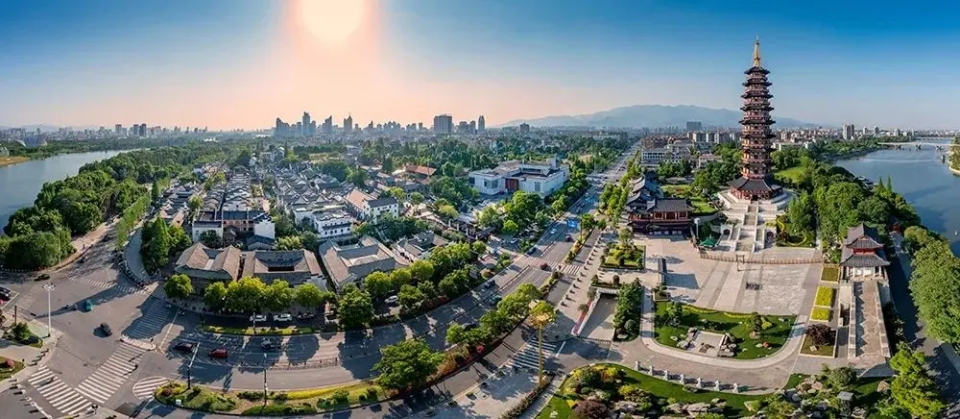
Jinhua Yuqingtang.
Yuqingtang is particularly celebrated as a memorial to the Cheng brothers, renowned figures in Neo-Confucianism. Their teachings and philosophies laid the groundwork for Confucian education, influencing generations of scholars and students. The inscription on a stone tablet within the hall, erected in the year of its construction, serves to commemorate Cheng Jiahe’s decision to abandon the pursuit of officialdom in favor of fostering his family’s academic legacy. This decision underscores the hall’s purpose as a center for learning and reverence for one’s ancestors, emphasizing the Confucian values that permeate Chinese culture.
In recognition of its cultural and historical importance, Yuqingtang was designated as a key cultural relic protection unit at the provincial level in March 2005, followed by its elevation to a national key cultural relic protection unit in May 2013. This status ensures that the hall is preserved for future generations, allowing visitors to appreciate not only its architectural beauty but also the deep-rooted history it embodies.
Today, Jinhua Yuqingtang stands as a prominent cultural landmark, attracting scholars, historians, and tourists alike. It serves not only as a reminder of the Cheng family’s contributions to Chinese philosophy and education but also as a symbol of the enduring legacy of traditional Chinese values, where respect for one’s ancestors and the pursuit of knowledge remain paramount.
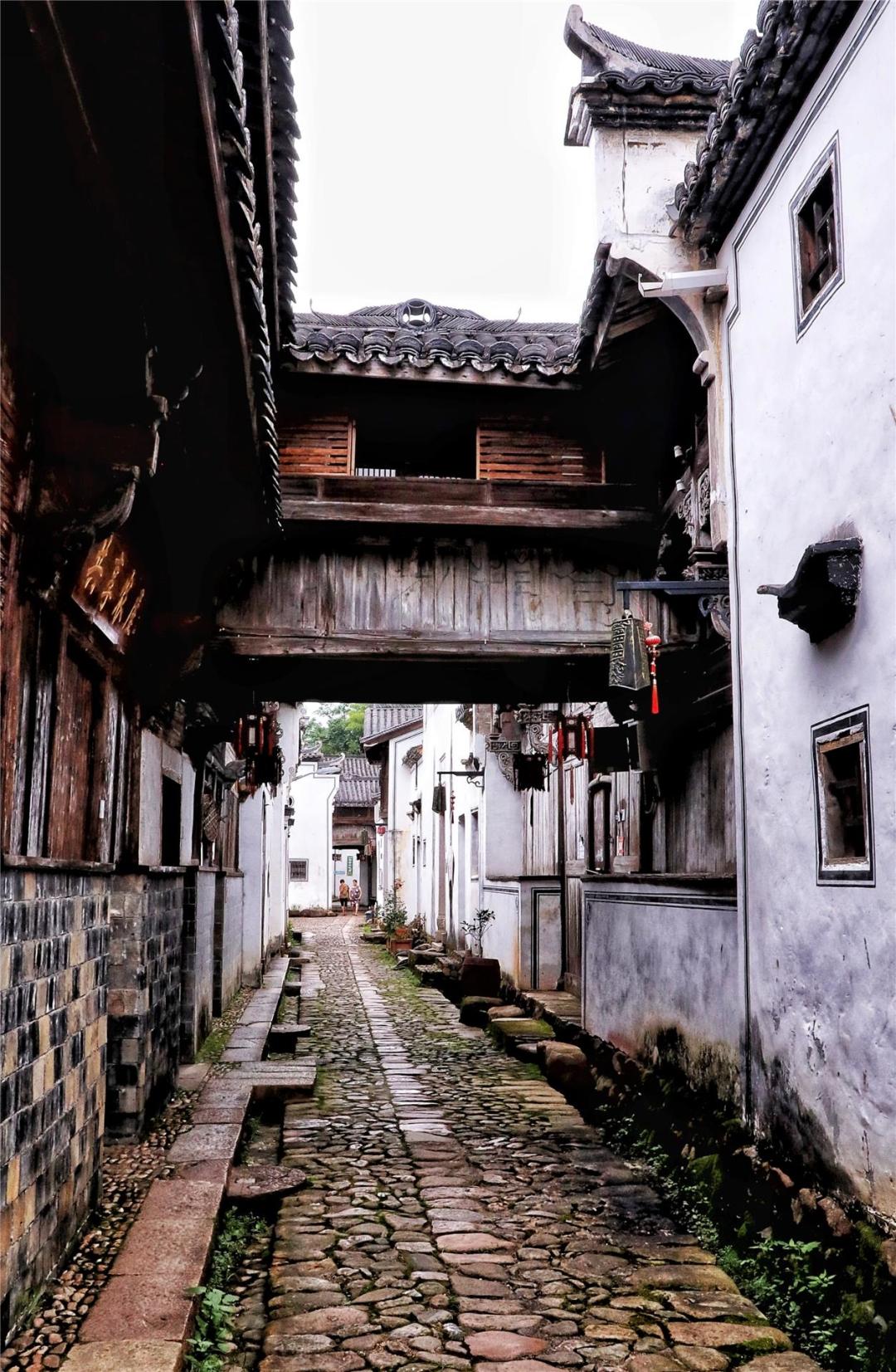
Jinhua Yuqingtang.
Main Highlights: What to See at Jinhua Yuqingtang
Nestled in the picturesque landscape of Jinhua City in Zhejiang Province, the Yuqingtang (余庆堂) is a remarkable historical and cultural gem that stands as a testament to the rich heritage of Chinese architecture. This ancestral hall, built during the Ming Dynasty, offers visitors a unique glimpse into the past through its exquisite design and historical significance.
One of the hall’s most striking features is its intricate layout, consisting of three courtyards that form a traditional “siheyuan” (四合院) structure, a classic representation of Chinese domestic architecture. The main hall, facing west, is adorned with detailed carvings and rests on a foundation of stone lions that date back to the Ming era, symbolizing protection and strength.
Constructed in 1790 by Cheng Jiahe, a descendant of the influential Song Dynasty philosophers Cheng Yi and Cheng Hao, Yuqingtang serves not only as a familial shrine but also as a cultural monument. The hall memorializes the Cheng clan’s commitment to education and virtue, with inscriptions detailing their ancestry and the hall’s purpose, emphasizing the importance of remembering one’s roots and honoring ancestors.
As a nationally recognized key cultural relic, Yuqingtang has been meticulously preserved, showcasing its original architectural beauty that remains intact despite the passage of time. The structure spans approximately 860 square meters, featuring wooden beams and columns intricately designed with motifs of dragons and other auspicious symbols, which are characteristic of traditional Chinese artistry.
Visitors can explore the tranquil surroundings of the Yuqingtang, where the charm of the ancient village atmosphere invites leisurely strolls and reflection. Nearby attractions, such as the Tongzhou Bridge and local ancestral halls, further enrich the experience, making it an ideal spot for history enthusiasts and cultural travelers alike.
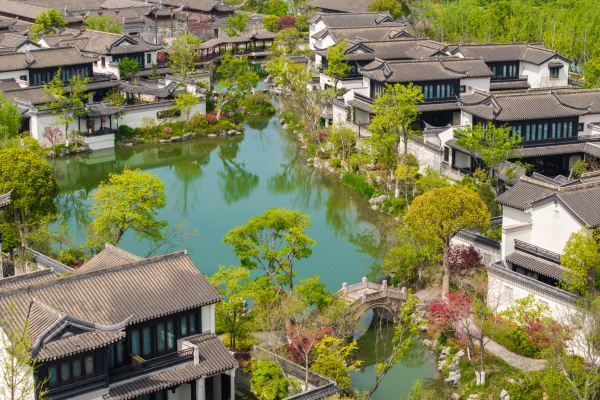
Jinhua Yuqingtang.
In summary, a visit to the Yuqingtang is not just a journey through time; it is an opportunity to engage with the profound philosophies and artistic traditions that have shaped Chinese culture over centuries. Whether you’re drawn by history, architecture, or the serene beauty of the landscape, Yuqingtang promises to leave an indelible mark on your travel experience.
Planning Your Visit: A Practical Guide
Practical Guide to Visiting Jinhua Yuqingtang (余庆堂)
Location and Accessibility
Jinhua Yuqingtang is situated in the picturesque village of Dudu, within the Lanxi City area of Jinhua, Zhejiang Province, China. Specifically, it can be found at Duyi Administrative Village, Nübu Street, Lanxi. The site is approximately 20 kilometers from the city center of Jinhua, making it accessible by local taxis or private transport. For those using public transportation, buses from the Jinhua city center frequently run to Lanxi, and from there, a short taxi ride will take you directly to the venue.
Opening Hours
Yuqingtang is generally open to visitors throughout the week, although specific hours may vary. It is advisable to check ahead of your visit or consult local tourist information for the most up-to-date hours.
Admission Fee
As a protected cultural heritage site, there may be an admission fee to enter Yuqingtang. This fee typically ranges from 20 to 50 Chinese Yuan, depending on special exhibitions or events. Discounts may be available for students or senior citizens, so bringing proper identification is recommended.
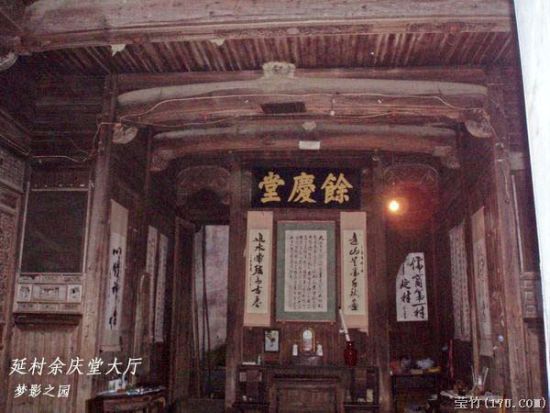
Jinhua Yuqingtang.
Best Time to Visit
The ideal time to visit Yuqingtang is during the spring (April to June) and autumn (September to November) months when the weather is mild and pleasant. These seasons also offer the opportunity to enjoy the lush surrounding landscapes and local festivals.
What to Expect
Jinhua Yuqingtang is an exquisite example of Ming and Qing Dynasty architecture, with a total area of about 860 square meters. The structure features a traditional three-courtyard layout and is adorned with historical relics, including a pair of stone lions from the Ming Dynasty that guard the entrance.
Inside, you will find intricate wood carvings and beautifully preserved artifacts that narrate the story of the Cheng family, descendants of notable Song Dynasty philosophers Cheng Yi and Cheng Hao. The highlight of the hall includes a stone tablet inscribed during the Qing Dynasty, offering insights into the family’s lineage and their contributions to education and philosophy.
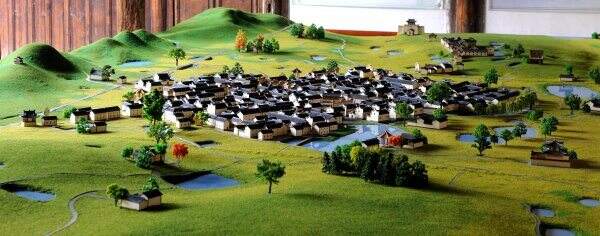
Jinhua Yuqingtang.
Nearby Attractions
While visiting Yuqingtang, consider exploring other nearby attractions to enrich your experience:
– Tongzhou Bridge: A historic bridge offering scenic views, located just a short drive away.
– Shengtang Hu Family Ancestral Hall: Another ancient architectural site that showcases the rich heritage of the region.
– Renshan Academy: A traditional educational institution that highlights the local commitment to scholarship and learning.
Local Cuisine
No visit to Jinhua is complete without indulging in the local delicacies. Be sure to try:
– Jinhua Ham: Renowned for its rich flavor and texture, it is a must-try for food lovers.
– Lanxi Noodles: A delicious local dish that can be found in various restaurants around the area.
– Jinhua Rice Wine: This unique beverage is perfect for pairing with meals or enjoying on its own.
Tips for Travelers
- Language: While some local residents may speak basic English, it is advisable to learn a few key phrases in Mandarin to enhance communication and navigation.
- Cash: Although digital payments are widely accepted, carrying some cash in Chinese Yuan is useful, especially in rural areas.
- Respect Local Customs: When visiting religious or cultural sites, dress modestly and behave respectfully, as these locations are often of great significance to the local community.
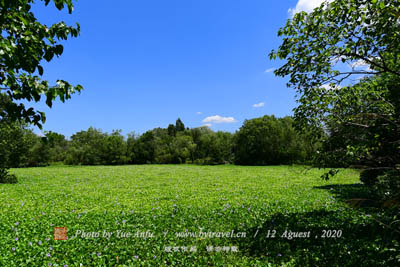
Jinhua Yuqingtang.
With its rich history and cultural significance, a visit to Jinhua Yuqingtang is sure to be a memorable experience that deepens your understanding of China’s historical legacy. Enjoy your journey!
Tickets, Hours, and Booking
When planning your visit to Jinhua Yuqingtang, it’s essential to understand the ticketing options available for a seamless experience.
Ticket Information for Jinhua Yuqingtang
-
Admission Fee: Entrance to Jinhua Yuqingtang is generally free of charge, making it an accessible destination for all visitors eager to explore its historical significance and architectural beauty.
-
Visiting Hours: The site is open to the public from 8:00 AM to 5:00 PM daily. It’s advisable to arrive early to fully appreciate the serene surroundings and avoid crowds.
-
Guided Tours: While self-exploration is encouraged, guided tours are available for those interested in a deeper understanding of the site’s rich history and cultural significance. These tours typically require a small fee, which varies based on the group size and duration.
-
Group Discounts: For educational institutions or large groups, discounts may be available. It’s recommended to contact the management in advance to inquire about any applicable rates.
-
Accessibility: The site is equipped to accommodate visitors with disabilities, ensuring that everyone can enjoy the beauty and heritage of Jinhua Yuqingtang.
-
Nearby Attractions: After exploring Yuqingtang, consider visiting nearby attractions such as the Lanxi Tongzhou Bridge and the Jiang Clan Ancestral Hall, which also showcase the rich cultural tapestry of the region.
Plan your visit to Jinhua Yuqingtang to immerse yourself in the historical ambiance of this important cultural site without the worry of ticket costs!
How to Get There
When planning your visit to Jinhua Yuqingtang, located in the picturesque city of Jinhua in Zhejiang Province, understanding the transportation options available can greatly enhance your travel experience. Here’s a comprehensive guide to help you navigate your way to this historical site.
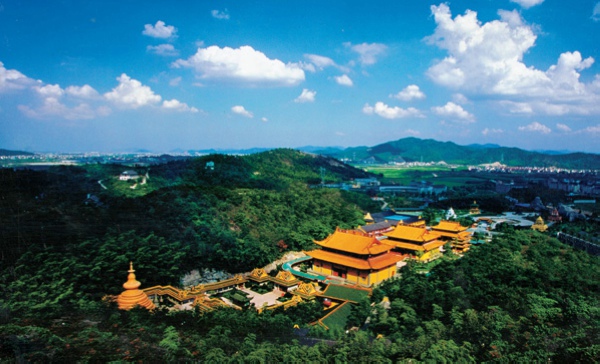
Jinhua Yuqingtang.
Getting to Jinhua Yuqingtang
By Air:
The nearest major airport to Jinhua is Yiwu Airport (YIW), approximately 20 kilometers away. This airport offers domestic flights from major cities such as Shanghai, Beijing, and Guangzhou. From Yiwu Airport, you can hire a taxi or use ride-sharing services to reach Jinhua Yuqingtang. The journey takes about 30 minutes.
For international travelers, Hangzhou Xiaoshan International Airport (HGH) is another option, located about 120 kilometers from Jinhua. From the airport, you can take a high-speed train to Jinhua, which is a comfortable and efficient choice.
By Train:
Jinhua is well-connected by rail, making train travel a popular option. The Jinhua Railway Station and the Jinhua South Railway Station serve both high-speed and regular trains. High-speed trains from cities like Hangzhou, Shanghai, and Nanjing can get you to Jinhua in under two hours.
Once you arrive at Jinhua Railway Station, you can take a taxi or a local bus to reach Yuqingtang. The taxi ride is approximately 15 minutes, while local buses offer a more economical alternative.
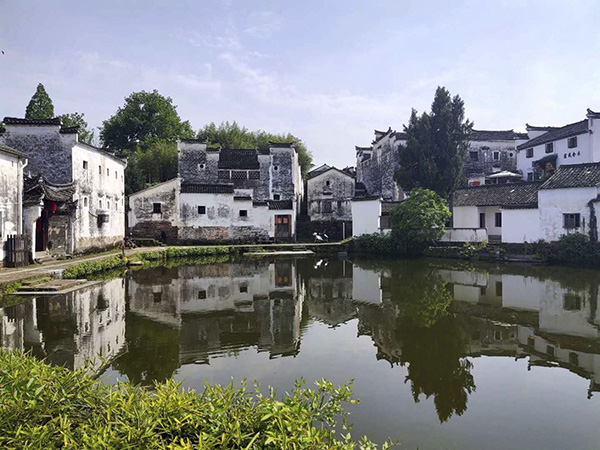
Jinhua Yuqingtang.
By Bus:
Long-distance buses operate frequently to and from Jinhua, connecting it to various cities in Zhejiang province and beyond. The Jinhua Long-Distance Bus Station is the main hub for these services. If you’re traveling from nearby cities like Yiwu or Wenzhou, buses are a convenient and affordable option.
From the bus station, you can easily find a taxi or local transportation to Yuqingtang.
By Car:
If you prefer to drive, renting a car is a viable option. Jinhua is accessible via major highways, including the G60 Huhang Expressway, which connects to other major cities. Keep in mind that parking may be limited around Yuqingtang, so plan accordingly.
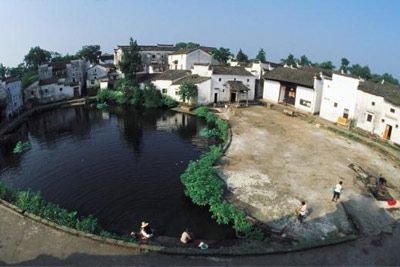
Jinhua Yuqingtang.
Local Transport:
Once in Jinhua, local buses, taxis, and ride-sharing services are readily available to help you navigate the city. For a more immersive experience, consider renting a bicycle or exploring on foot, especially in the surrounding scenic areas.
Summary
With various transportation options available, reaching Jinhua Yuqingtang is both convenient and straightforward. Whether you choose to travel by air, train, bus, or car, you’ll find that navigating to this cultural gem in Jinhua is an enjoyable part of your journey. Be sure to check schedules and availability in advance, especially during peak travel seasons, to ensure a smooth experience.
Local Cuisine and Accommodation
When visiting Jinhua Yuqingtang, a historic site renowned for its architectural beauty and cultural significance, you’ll want to indulge in the local culinary delights and find suitable accommodation to enhance your experience.
Culinary Delights
Local Specialties:
1. Jinhua Ham (金华火腿) – A must-try delicacy, Jinhua ham is famous for its rich flavor and is often used in various dishes. Don’t miss the chance to sample this traditional cured meat, which pairs beautifully with rice or noodles.
-
Dongyang Noodles (东阳面) – Known for their chewy texture, these noodles are often served in a fragrant broth with a variety of toppings. Look for local eateries that serve them with seasonal vegetables and tender meat.
-
Yongkang Ginger (永康五指姜) – This unique ginger variety from the region offers a distinctive flavor profile. It can be found in many local dishes or enjoyed pickled as a side.
-
Sesame Cake (芝麻饼) – A popular snack, these crispy cakes are made with sesame seeds and are perfect for a quick bite while exploring the area.
-
Local Seafood – Given Jinhua’s proximity to water sources, fresh fish and other seafood are abundant. Look for restaurants that offer grilled or steamed options, highlighting the natural flavors of the catch.
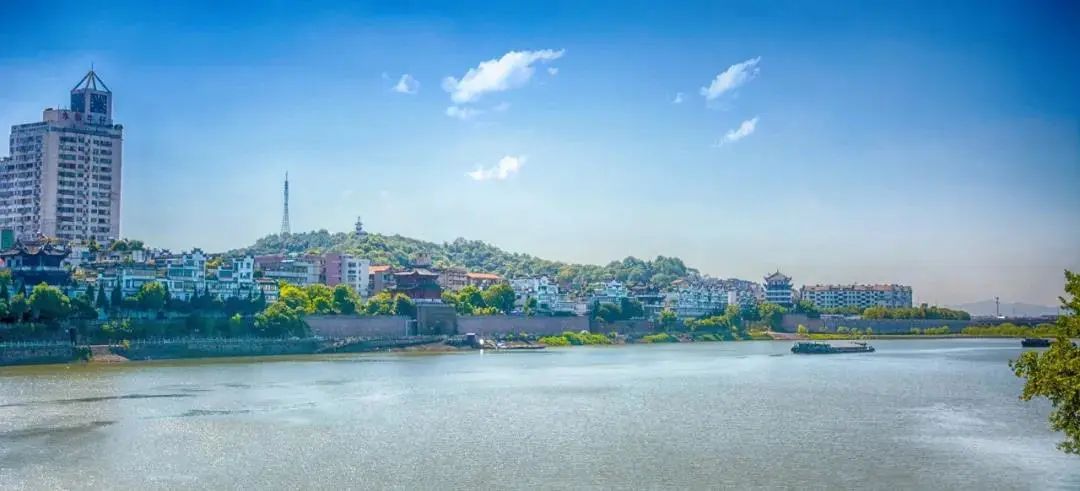
Jinhua Yuqingtang.
Dining Venues
-
Local Market Stalls: For an authentic experience, visit the bustling local markets where vendors offer street food delights, from dumplings to skewers.
-
Jinhua Restaurants: Renowned places like Jinhua Old Town Restaurant and Yuqingtang Cultural Cuisine provide a cozy atmosphere and a range of traditional dishes, making them great spots for both lunch and dinner.
Accommodation Options
Where to Stay:
1. Yuqingtang Hotel: Located near the historical site, this hotel offers comfortable accommodations with easy access to the Yuqingtang. Guests can enjoy traditional decor and modern amenities, making it a perfect choice for culture enthusiasts.
-
Jinhua Grand Hotel: A bit further from the site but offering luxurious amenities, this hotel features spacious rooms, a spa, and dining options that focus on local cuisine, making it a great base for exploration.
-
Homestays in Dudu Village: For those seeking a more immersive experience, consider staying in a homestay within nearby villages. This option allows you to enjoy the local lifestyle, with meals often prepared by your hosts using fresh, local ingredients.
-
Budget Hostels: If you’re traveling on a budget, there are several hostels in Jinhua that provide clean and simple accommodations. They often include communal kitchens, which can be a great way to meet other travelers.
Whether you’re savoring local dishes or resting in charming accommodations, your visit to Jinhua Yuqingtang will be enriched by the flavors and hospitality of the region.
Frequently Asked Questions
-
What is Jinhua Yuqingtang?
Jinhua Yuqingtang, located in the village of Dudu in Jinhua, Zhejiang Province, is a historic ancestral hall built during the Ming Dynasty. It serves as a memorial for the descendants of renowned Song Dynasty philosophers Cheng Yi and Cheng Hao. -
When was Jinhua Yuqingtang built?
The hall was constructed in the early 14th century, specifically during the Hongwu period of the Ming Dynasty. The structure reflects traditional Chinese architectural styles and has been meticulously preserved over the centuries. -
What are the main features of Jinhua Yuqingtang?
The hall features a classic three-entry layout and is adorned with a pair of ancient stone lions at its entrance. Inside, visitors can admire intricately carved wooden beams and decorative elements typical of Ming and Qing architecture. -
Is Jinhua Yuqingtang a protected cultural site?
Yes, Jinhua Yuqingtang is designated as a National Key Cultural Heritage Site due to its historical significance and architectural value. It was officially recognized as a protected site in 2013. -
How can I get to Jinhua Yuqingtang?
Jinhua Yuqingtang is accessible by public transportation or by private vehicle. Visitors can take a bus or taxi from central Jinhua to reach the village of Dudu, where the hall is located. -
Are there any nearby attractions to visit?
Yes, several notable sites are within close proximity, including the famous Tongzhou Bridge, the Jiang Clan Ancestral Hall, and the Ren Mountain Academy. These sites offer additional insights into the region’s rich cultural heritage. -
What is the best time to visit Jinhua Yuqingtang?
The ideal time to visit is during spring and autumn when the weather is mild, making it perfect for exploring the site and nearby attractions. Festivals and local events may also enhance your experience during these seasons. -
Are there any admission fees for visiting Jinhua Yuqingtang?
Currently, there is no admission fee to enter Jinhua Yuqingtang, making it an accessible option for travelers interested in history and culture. However, it’s always a good idea to check for any updates or special events that may require a fee.
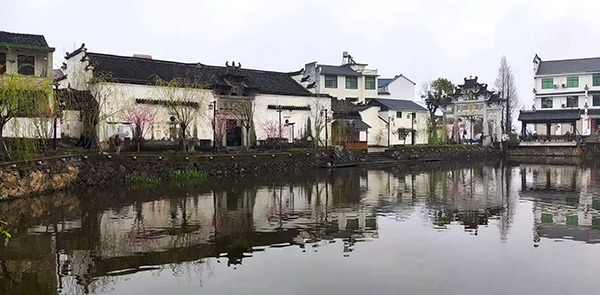
Jinhua Yuqingtang.
Final Thoughts on Your Trip
Visiting Jinhua Yuqingtang is not merely a journey to a historical site; it is an immersive experience that connects you to the rich cultural tapestry of China. This ancestral hall, with its roots tracing back to the Ming and Qing dynasties, stands as a testament to the enduring legacy of the Cheng family and their significant contributions to philosophy and education. As you walk through its meticulously preserved corridors, you are enveloped in a sense of reverence for the past, while also gaining insight into the values that shaped generations.
The intricate architectural details and the serene surroundings of Yuqingtang provide a tranquil retreat from the hustle and bustle of modern life. It invites travelers to reflect on the importance of heritage and family, reminding us that the stories of those who came before us continue to resonate through time.
Whether you are a history enthusiast or simply seeking a peaceful getaway in nature, a visit to Jinhua Yuqingtang promises to enrich your understanding of Chinese culture. As you leave, take with you the spirit of respect for tradition and the inspiration to carry forward the lessons learned from this remarkable place. Embrace the journey, and let the legacy of Yuqingtang inspire your own path.
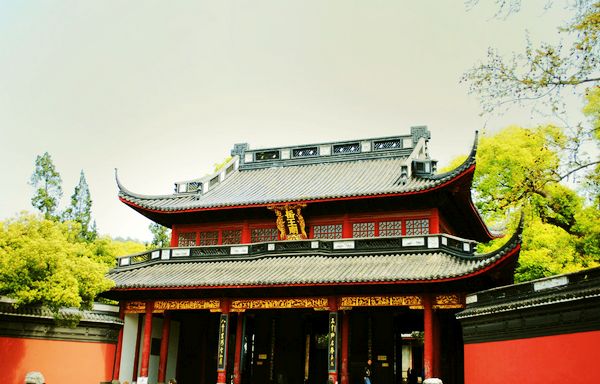
Jinhua Yuqingtang.
